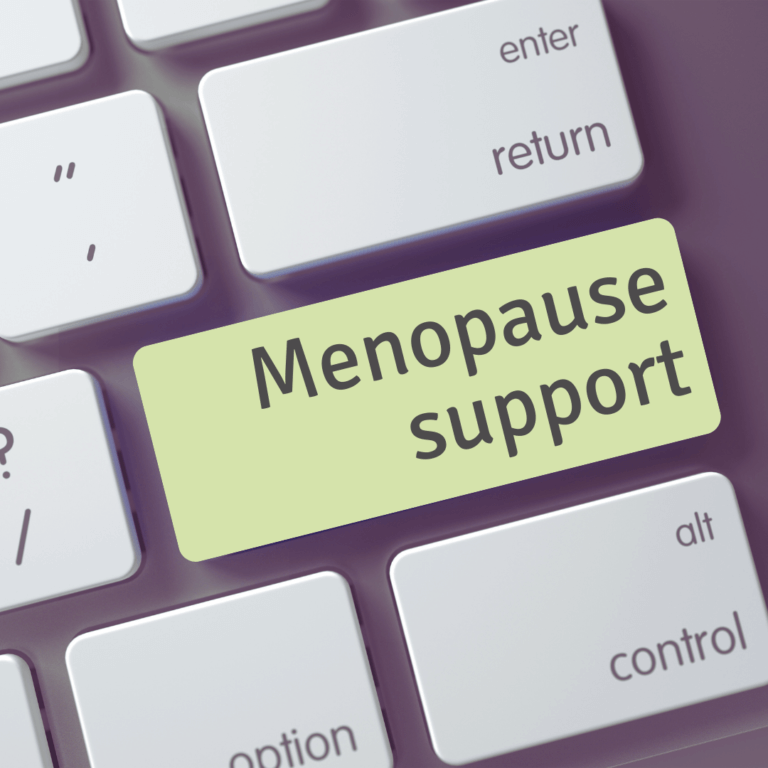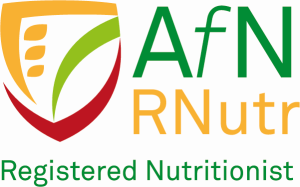The number of collagen supplements available seems to have increased in recent years. Many of these are marketed to menopausal women. The question: Should I be taking a collagen supplement? is something I often get asked, so I’ve written this post to help provide some clarity.
What is collagen?
Collagen is the most abundant protein in the body. It’s a structural protein that helps make up the structure or framework of cells and tissues. It’s found, for example, in connective tissue, skin, tendons, bones and cartilage.
As with all proteins, collagen is made up of amino acids (the building blocks of proteins). What’s interesting about collagen is that it has quite a unique amino acid structure. Unique as it’s generally made up of three amino acids: glycine, proline and hydroxyproline.
The different types of collagen
There’s a variety of types of collagen, with each having slightly different structures. You may have heard about types 1, 2 and 3 collagen as these are the most common types found in the body. These make up around 90% of the collagen in your body. However, up to 28 different collagen types have been identified. These are numbered 1-28. Type 1 and 3 collagen are mainly found in your skin and bones, whilst type 2 collagen is mainly found in your joints.
What happens to our collagen production as we age?
As we get older our collagen production slows and reduces in quality. Fibroblasts are cells found in connective tissue that produce and maintain collagen. As we age, our fibroblast function becomes impaired and collagen production slows. This contributes to signs of ageing such as wrinkles and sagging skin. During perimenopause, as oestrogen drops, there is a bigger decrease in the amount of collagen produced. As much as 30% of skin collagen may be lost in the first 5 years after menopause (Thornton, 2013).
What else impacts collagen in the body?
One of the biggest factors that impact skin ageing is UV light as this impacts the fibroblasts that produce collagen. Smoking is known to degrade collagen and cause skin ageing, wrinkles and loss of elasticity, and excessive alcohol can speed up skin aging by reducing collagen production and damaging skin repair mechanisms.
Can we get collagen from our diet?
Yes. The body can naturally make collagen from amino acids that we get from protein foods, particularly animal foods such as chicken, beef and fish. Protein foods when digested are broken down into amino acids. Your body can then use these amino acids to assemble different types of protein, including collagen.
You can support your body to make collagen by including a variety of protein foods like meat, fish, eggs, beans and lentils. As vitamin C is needed to help the body make collagen, eating a variety of vitamin C rich foods, such as fruits and vegetables, is also important.
Where does the collagen in supplements come from?
All collagen is derived from animals. Bovine collagen is typically derived from cow hides, tendons, hooves, and other connective tissue. Marine collagen is derived from fish skin and scales or fins. Egg shells can also be used as a source of collagen. The collagen proteins are processed to break them down into small peptides using a process called hydrolysation. This makes it easier for the body to absorb and use, compared to non-hydrolysed collagen.
Should I take a collagen supplement?
There’s a few things to consider. One factor is the cost, as collagen supplements can have quite a high price tag. Current evidence on the benefits of collagen supplements is unclear, although there has been some promising results suggesting benefits to bone and joint health (Konig et al , 2018; Garcia-Coronado et al, 2019) and reducing signs of aging (de Miranda et al, 2021; Pu et al, 2023). This is covered more in the Eating Well for Menopause book.
How do I choose a collagen supplement?
There’s an increasing choice of collagen supplements, some of these have substantial price tags and slick marketing. Be wary of any supplements that are heavily marketed using influencers or lots of customer testimonials. These may sound convincing and emotive, but the quality of the product and the science supporting it is more important to note.
Collagen is derived from animals, mainly bovine or marine sources, so consider if you feel comfortable with the source ingredient. Also, make sure it’s a good quality supplement. For example look for collagen that is derived from sustainably sourced fish, grass-fed animals and contains few additional fillers.
Some collagen supplements are marketed as vegan collagen. Rather than providing collagen directly, these supplements contain ingredients to support you body to make collagen itself.
Also, there’s no clear evidence on whether collagen in a liquid, powder or capsule form is better, so choose a form that suits you best.
Check out my comments in this article in British Vogue magazine ‘16 of the best collagen supplements, recommended by experts and editors‘.
Be objective
Be your own case study. Trial the supplement as objectively as you can. Before starting the supplement, document some measurements: for example, your skins moisture, plumpness, fine lines; how quickly your nails grow, how thick or smooth you hair is, how fast it grows; and note any muscle aches and joint pains. Then take the supplement as instructed on pack and reassess your measurements after 8-12 weeks, as this is the length of time that any improvements are likely to take. If you don’t notice any improvement, your money could probably be used better elsewhere.
I’ve been trying out True Collagen powder from Ancient + Brave, but there are many collagen supplement products available.
A holistic approach to your health
Eating a healthy, balanced plant-rich diet will help support the body as you age. For example, the Mediterranean diet includes a variety of plant foods, protein foods, whole grains and healthy fats, whilst minimising added sugar and highly processed foods that are often high in fat, salt and sugars.
Eating mindfully, getting enough good quality sleep, regular activity and keeping your stress levels in check are likely to benefit your health and wellbeing. For more tips on healthy skin see my previous post: Nutrition and skin: the facts.
For more tailored, personal nutrition advice, check out my individual consultations and packages.
*This blog post contains an Affiliate link. Please see my disclaimer page for more details.











